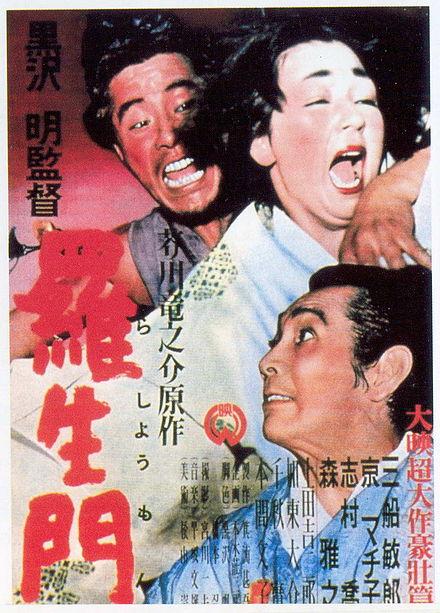Movies have a tremendous impact. Nowhere is this more obvious than in movie titles moving into standard vocabulary. “McGuffin” (which autocorrect thinks is “McMuffin”) and the Wilhelm scream may not be household terms, but many people know what they are without being movie experts. Even more impressive is when a movie title becomes its own noun. I learned about the Rashomon effect not from movies, but from history. When a story is told from more than one point of view, often with contradictory accounts, this is known as “the Rashomon effect.” It’s named after a movie, Rashomon, that I’ve never seen. I suspect I’m not the only one to use the phrase who hasn’t. Movies can become points of reference. We’re quite often visual creatures and movies can reach large audiences. The title plays a crucial role.

As the writer of a small blog with a small readership, and of books with small circulation, I often think of how movies manage to reach so many people. I’m constantly discovering movies from before when I was born, or from countries far away. They ask, like this blog, for only a little bit of time and yet they provide so many things to think about. In many ways they are the mythology of our age, and no matter whether you watch on your phone or the big screen, you’re joining the ranks of believers. Sometimes a movie becomes a cultural reference, such as is the case of “the Rashomon effect.” But this can lead to its own set of problems. Movies, like some bestselling books, often have one-word titles. Sometimes that word fits many movies (as in Entity/The Entity). Or sometimes it has a wider meaning, such as Avatar. Or it refers to another well-known reference, such as Titanic. I’m not picking on James Cameron here, but making a point that movies may make meaning, but they also bear the weight of their titles.
Titles are often sticking points with authors. Many academic writers like the draw of the clever or pithy title, but such titles often hurt the sales of their book. Using a quote as a title, apart from making confusion, also runs into duplicates. Titles can’t be copyrighted, so multiple books (or movies) can use the same one. Quotes have long been favorites, so using them for titles is not a good idea. I was distressed (mildly) when I realized that my fifth book, The Wicker Man, would bear the same title as the movie. (That’s the way the series rolls.) I’m now reading the proofs and thinking about titles. My next book may not have a one-word title, but I hope I’m getting close. And maybe it will have a little impact?
